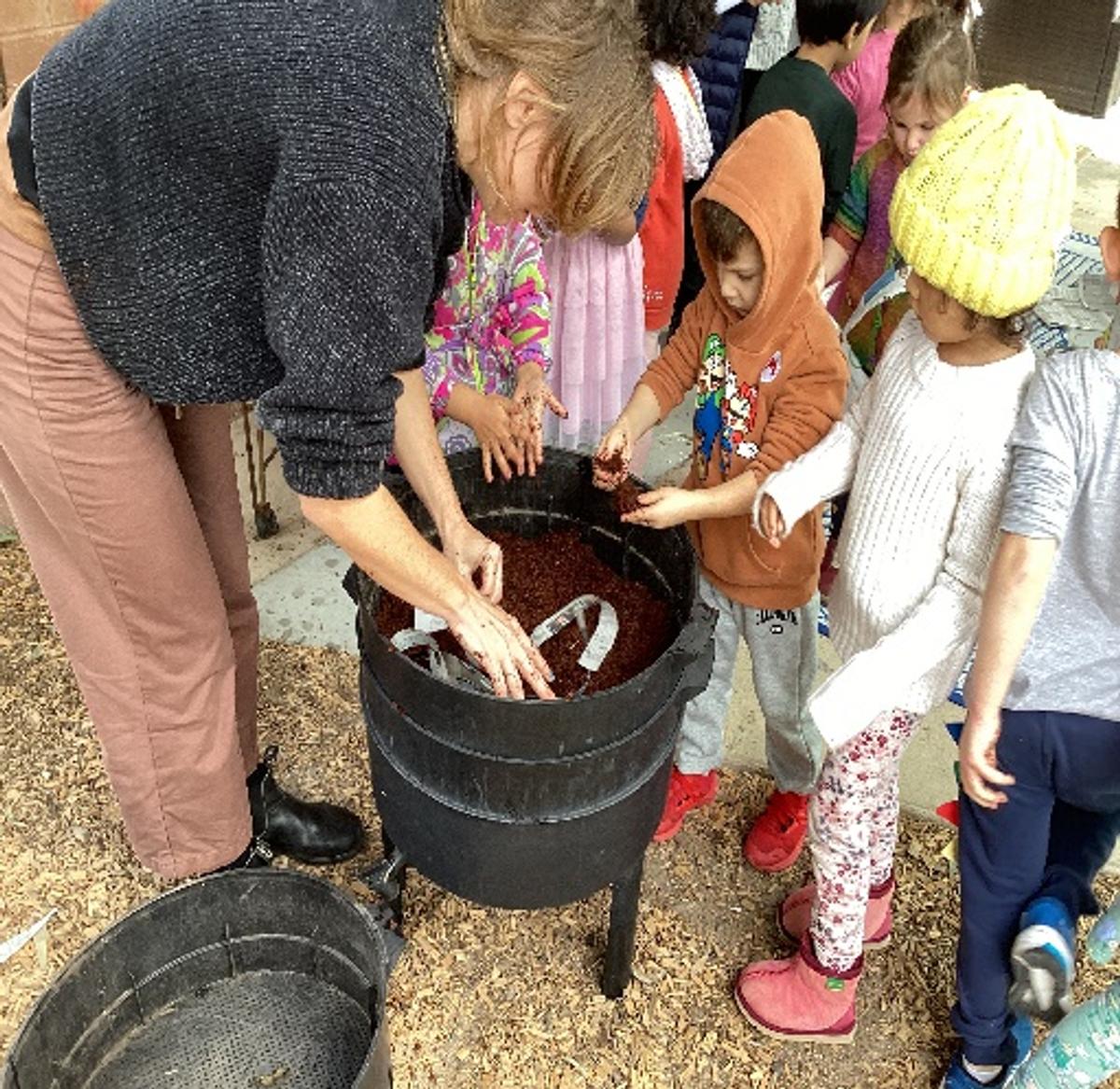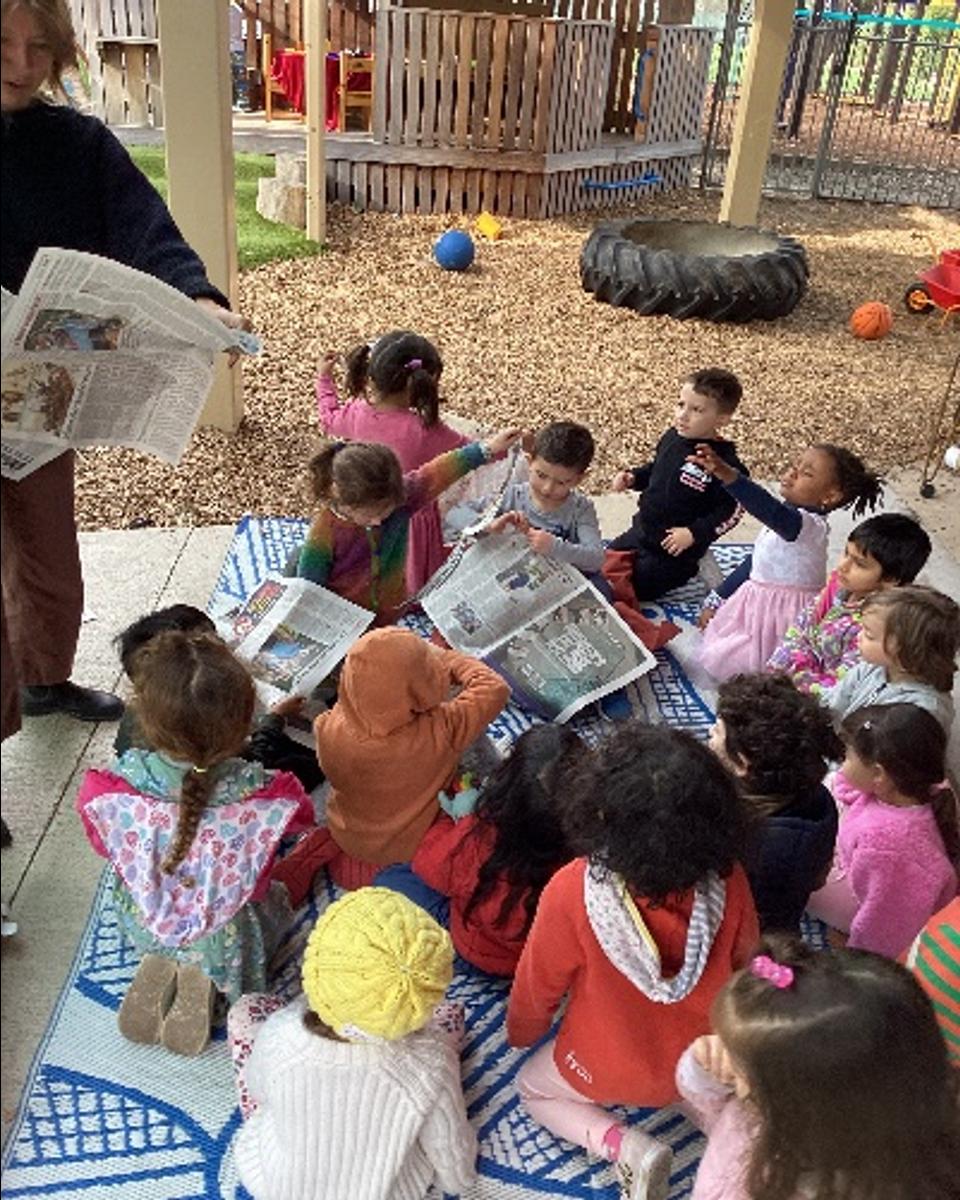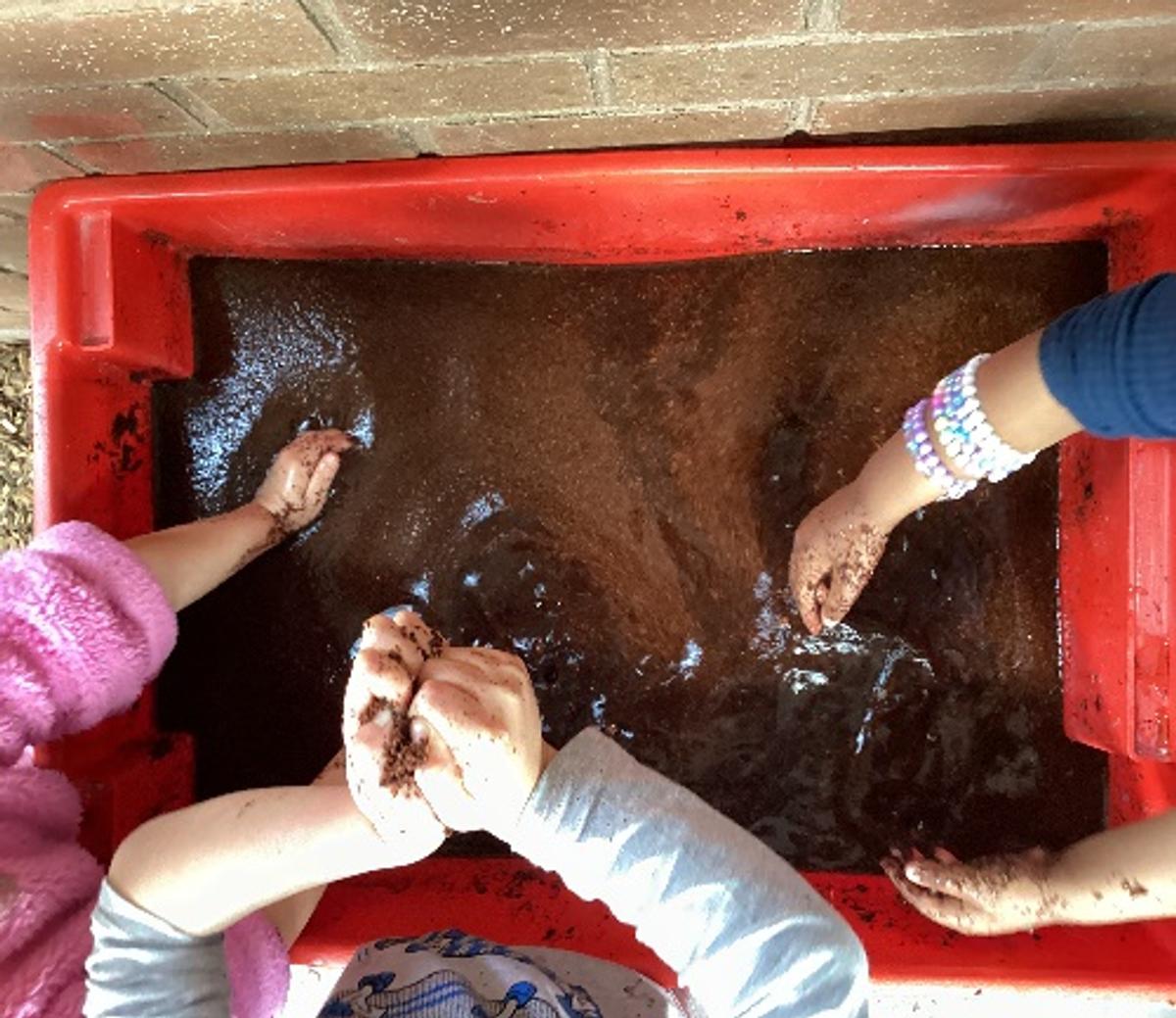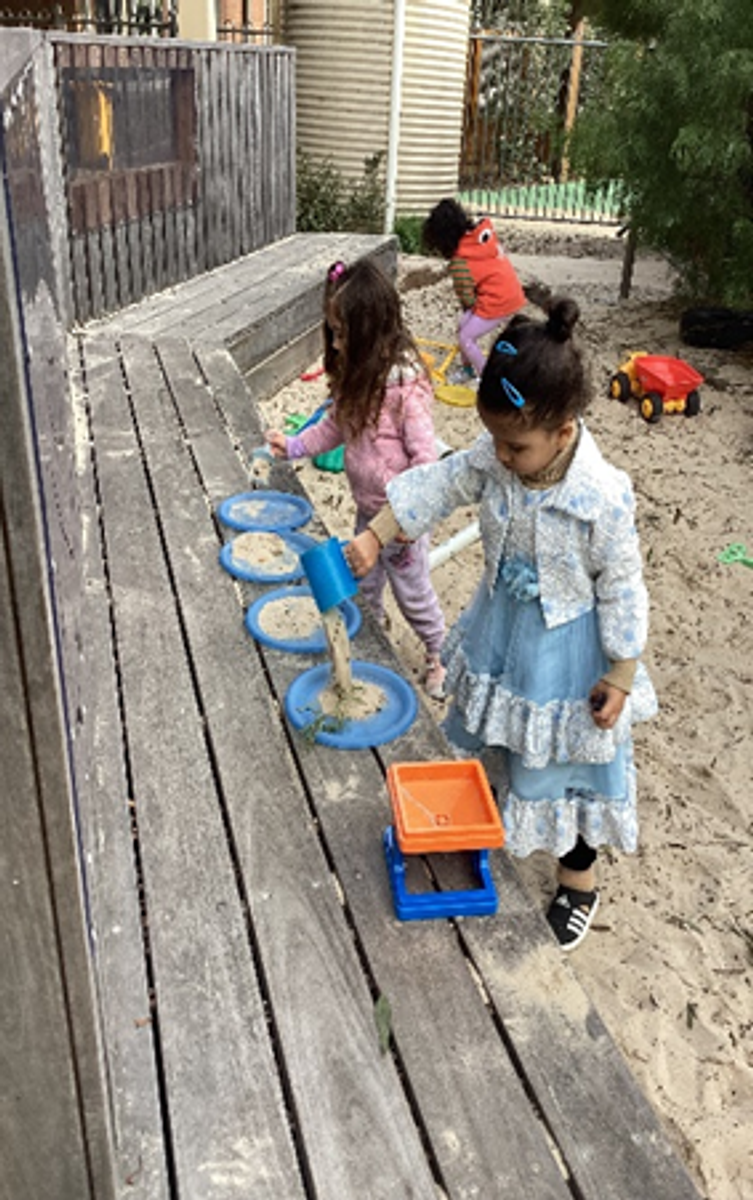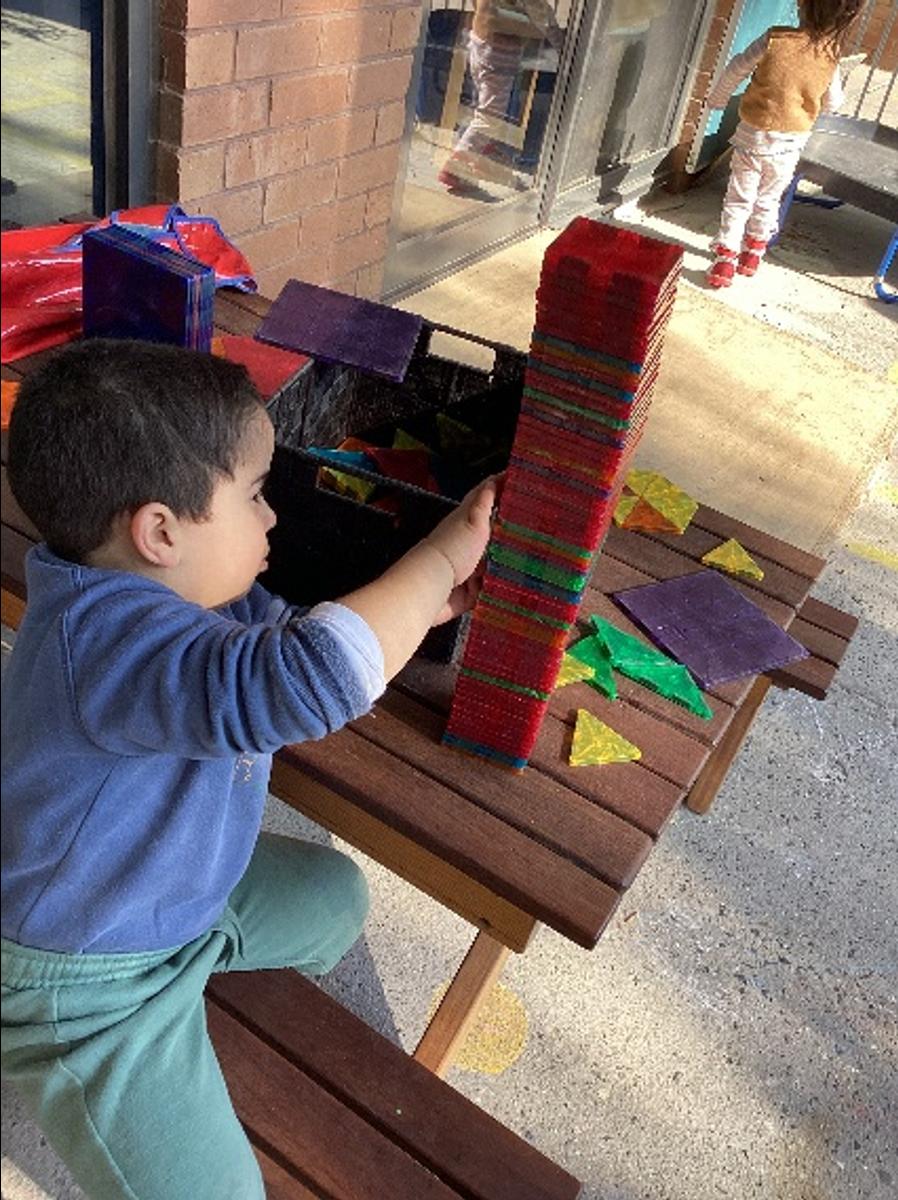Kinder News
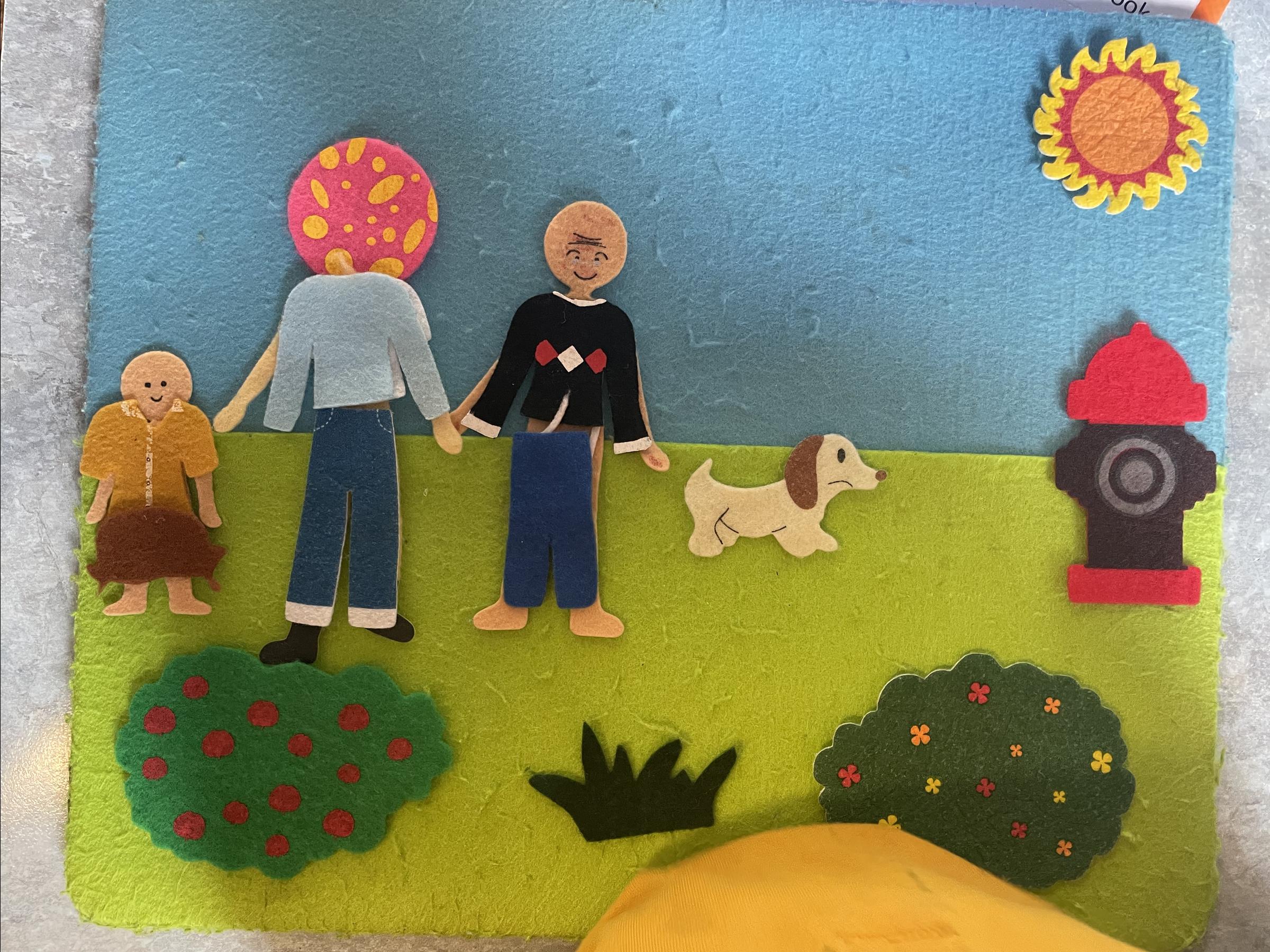
Following through from the children's interest in mini beasts as well as looking at sustainability and recycling food waste.
We had Jess from Enviro Com Victoria come out and set up our worm farm with the children.
Firstly, she spoke to the children about the process of building a worm farm, what worms eat and the benefits of having a worm farm at kinder, and that it is a special place where worms live and help to recycle food scraps into nutrient soil. Jess mentioned that the worms are vegetarian and eat fruit and vegetables, and then they turn the food scraps into compost, which helps plants grow strong and healthy. Taking care of worms teaches to the children responsibility for taking care of living things. She also re caped on recycling bins and what items go in each bin.
In the last month we have been looking at developing fine motor skills, strengthening finger and hand muscles. This lays the foundation for various activities children will engage in throughout their lives, especially handwriting, drawing and manipulating objects. Also, self-help skills like buttoning shirts, zipping zippers, or pouring drinks from a small pitcher and tying shoelaces. We will be looking at improving pincer grasp ability and eye hand coordination. Here are some examples of fine motor activities
Music & Movement
Group sessions this week was using instruments with on their own and with music.
Apart from the enjoyment of using instruments concepts we included was:
Slow, Fast, Stop, Start:
Slow-tempo music to help children focus, relax, and become attuned to the rhythm and melody.
Speed up the tempo for high-energy activities or to encourage movement and dance, promoting physical activity and excitement.
Stop to teach children the concept of pauses in music, emphasizing the importance of listening.
Start to encourage children to start and stop playing their instruments in sync with the music, helping them understand rhythm and timing.
Benefits:
Playing instruments requires coordination between hands, fingers, and sometimes feet, aiding in fine and gross motor skill development.
Music can improve memory, attention span, and problem-solving abilities.
Through songs, children learn new words, phrases, and sentence structures, fostering language development.
Music allows children to express themselves emotionally, promoting emotional intelligence and self-awareness.
Experimenting with different sounds and rhythms encourages creativity and imaginative play.


